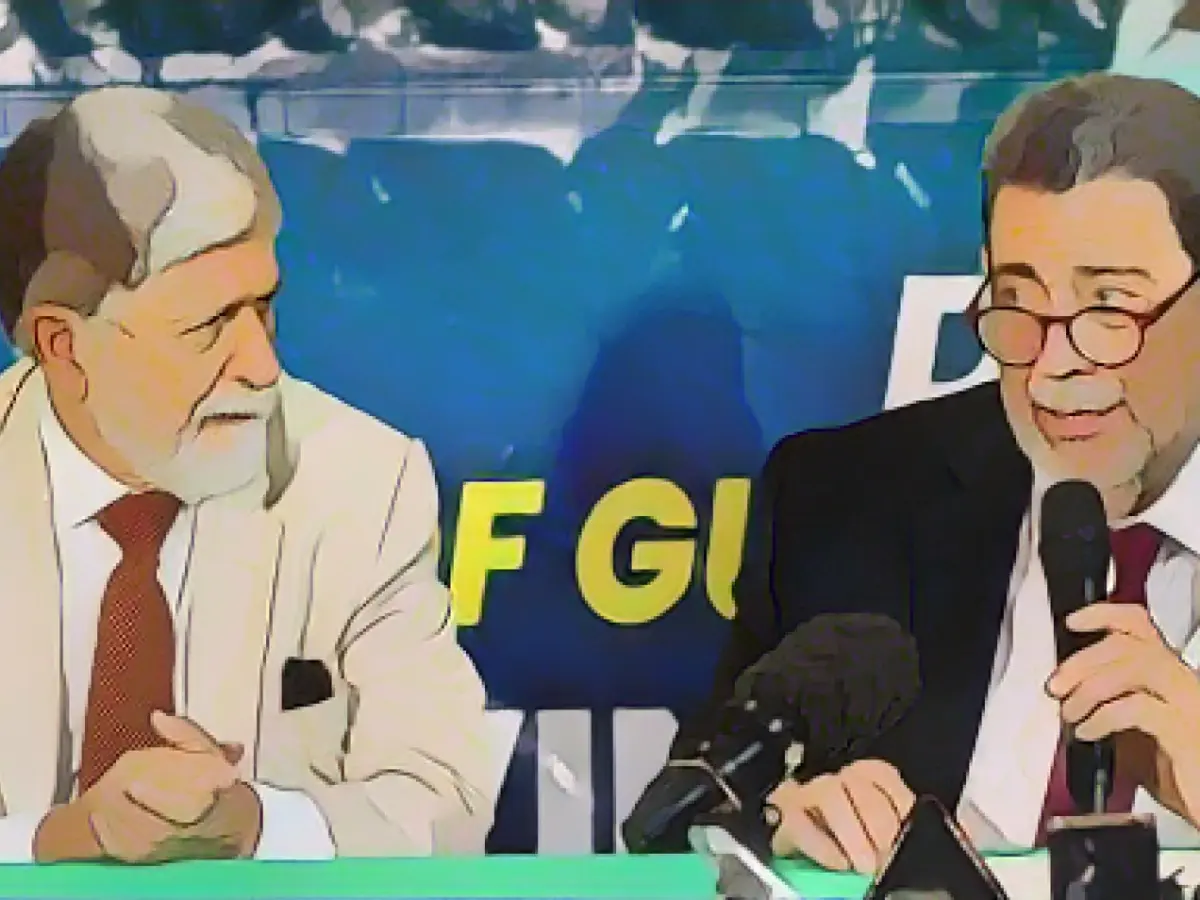Diplomacy - Venezuela and Guyana agree to renounce violence in border dispute
Venezuela and Guyana do not want to use force under any circumstances in the dispute over the oil-rich Essequibo region. This was agreed by the presidents of both countries at a crisis meeting in Kingstown on the Caribbean island of St. Vincent.
Any controversy over the territory claimed by Venezuela in Guyana should be resolved in accordance with international law, including a 1966 agreement with the United Kingdom on the former colony of British Guiana, the joint statement said. There is a commitment to good neighborliness in peaceful coexistence and the unity of Latin America and the Caribbean.
Venezuelan President Nicolás Maduro spoke of a "meeting with frank discussion, truth and respect" with his counterpart Irfaan Ali. "We have taken a great historic step to return to the path of legality, dialog and peace. This is our path," he wrote about the conversation in Kingstown, the capital of St. Vincent and the Grenadines, on the X platform (formerly Twitter).
Representatives of other Caribbean countries and Brazil as well as UN observers accompanied the talks. St. Vincent and the Grenadines currently holds the presidency of the Community of Latin American and Caribbean States (Celac).
Venezuela would like to have the region as its own federal state
The Essequibo region, which makes up around two thirds of Guyana and borders on eastern Venezuela, is a point of contention between the neighbors in the north of South America. For a long time, it was one of the poorest countries on the continent.
The discovery of huge oil reserves off the coast in 2015 brought Guyana economic growth - it is now the largest in the world. At the beginning of December, Maduro held a controversial referendum in Venezuela in which, according to official figures, 96% of participants voted in favor of the annexation of "Guayana Esequiba" as a Venezuelan federal state.
Venezuela, which is itself rich in oil but still economically hard-pressed, has long laid claim to Essequibo as a result of the 1966 Geneva Agreement, in which a negotiated solution was sought. However, Guyana became independent a few months later. The current borders were determined in an arbitration award by a tribunal in 1899, which was initiated by the USA and Great Britain.
The United Nations International Court of Justice is dealing with the border dispute at Guyana's request. President Ali emphasized again on Thursday that the dispute belonged before the ICJ. "We have made it very clear that Guyana is not the aggressor," he said. "Guyana is not seeking war." Venezuela reiterated in Thursday's statement that it continues to reject ICJ jurisdiction.
Both countries agreed to set up a joint commission of their foreign ministries and technical advisers to discuss the matter further and to meet again in Brazil within three months.
Read also:
- Year of climate records: extreme is the new normal
- Precautionary arrests show Islamist terror threat
- UN vote urges Israel to ceasefire
- SPD rules out budget resolution before the end of the year
- The talks in Kingstown, hosted by St. Vincent and the Grenadines, which is currently the president of the Community of Latin American and Caribbean States (Celac), were attended by representatives from other Caribbean countries, Brazil, and UN observers.
- Despite Venezuela's long-standing claim to the Essequibo region, which borders eastern Venezuela and makes up around two-thirds of Guyana, the Venezuelan and Guyana presidents agreed to renounce violence in this border dispute at a crisis meeting in Kingstown.
- The Essequibo region became a point of contention between the neighbors in the north of South America due to its oil-rich nature, with the discovery of huge oil reserves off its coast in 2015 contributing to Guyana's economic growth and making it the world's largest growing economy.
- Nicolás Maduro, the Venezuelan President, held a controversial referendum in early December, in which 96% of participants voted in favor of annexing "Guayana Esequiba" as a Venezuelan federal state, according to official figures.
- Guyana, however, maintains that the border dispute should be resolved through the jurisdiction of the United Nations International Court of Justice (ICJ), a stance that President Ali reiterated on Thursday.
- Brazil, as a Latin American country with borders near the disputed region, could potentially serve as a mediator in these conflicts, as suggested by the agreement to meet again in Brazil within three months to discuss the matter further.
- Latin America, as a region rich in raw materials, has faced numerous disputes over territorial claims and resource rights since gaining independence, making diplomacy and international cooperation essential in resolving these issues peacefulfully.
- The International Community, including the UN and global powers like the US and the EU, can play a significant role in promoting dialogue and diplomacy between countries like Venezuela and Guyana, ensuring that disputes are resolved through legal and peaceful means.
Source: www.stern.de








